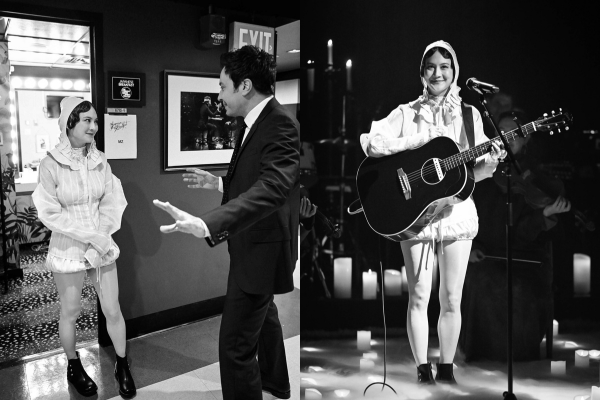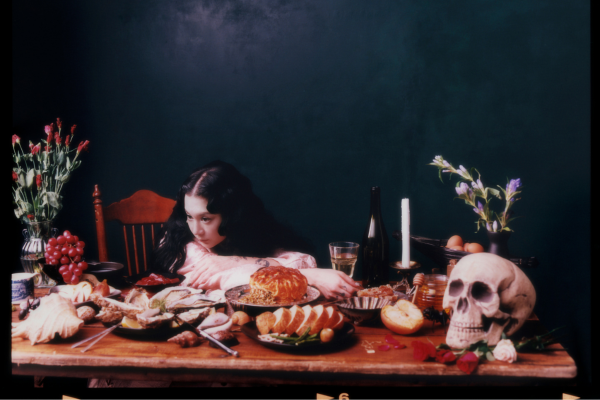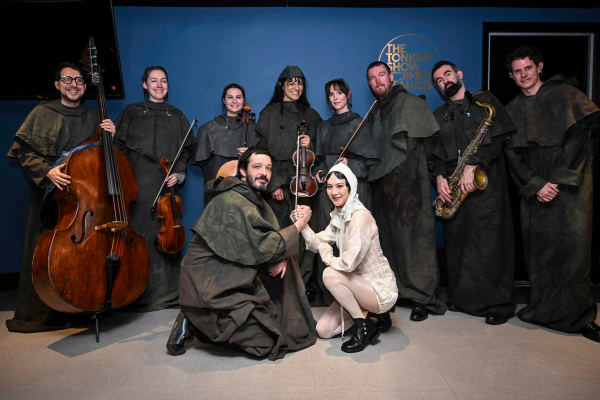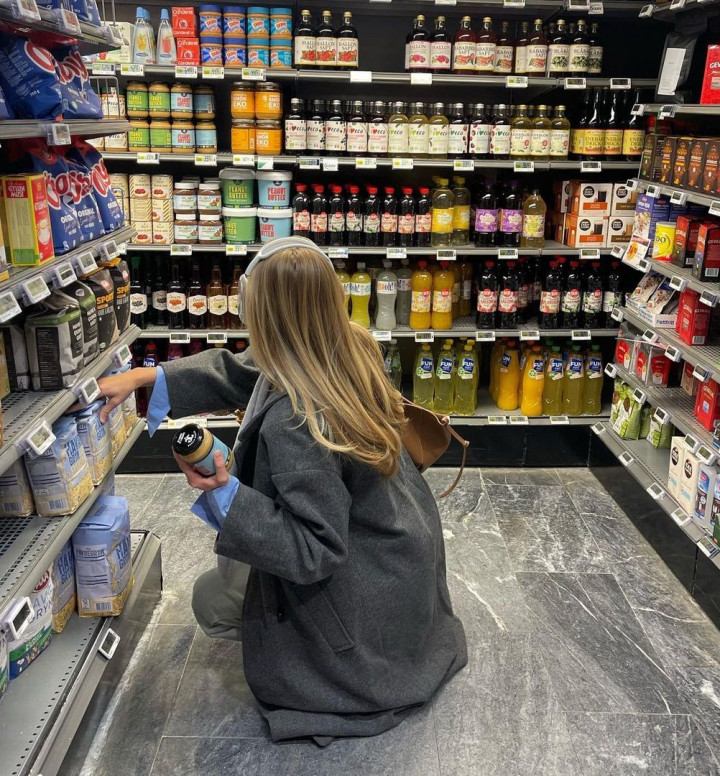Japanese Breakfast’s Michelle Zauner shares new music and touring rituals ahead of her Auckland concert
Michelle Zauner, the multi-hyphenate melancholic force behind Japanese Breakfast, is no stranger to reinvention. With her fourth studio album, For Melancholy Brunettes (& sad women), Zauner pivots from the effervescent brightness of 2021's Grammy-nominated Jubilee into more intricate emotional terrain. At the cusp of her Melancholy World Tour, performing a sold-out show in Chicago over the weekend, Remix caught a moment of stillness with the musician in motion.

How has performing this new album been?
It's been so nice performing new material. It's also been a challenging and stimulating return to the guitar. On Jubilee, I was more of a front person and missed playing. Many songs on For Melancholy Brunettes (& sad women) have complex fingerpicking and chord progressions. Working with Blake Mills means the music is demanding, so we've all had to be in top form. Luckily, we have the same band as the last tour, so the chemistry is already there–we know how to fill in the blanks and make the shows fun.
Being on tour is gnarly and requires a lot of you. How do you prepare for an international tour like this one? Are there any grounding rituals?
In some ways, this tour is the easiest tour I have ever been on. Because we have such a beefy crew that gives the band a tonne of support, we can save our energy for the show and take care of ourselves. I come from a DIY background, so I am used to carrying all my own gear and hauling around an eighty-pound amp. Not having to do that and having someone who changes all my strings, puts my guitar into tune, and sets up the stage is such a luxury. I've also started to embrace rest, being okay with doing nothing on days off and not getting impacted by FOMO. I stopped drinking on tour, too. It's just too easy to get sick, and I can't perform well hungover. So now, I eat well, do yoga, and try to stay healthy.
You've got your first-ever New Zealand show on June 7th. What are you planning while you're here?
When I saw my friends from Mannequin Pussy went to Hobbiton, I knew that was a major priority. So we have booked the evening banquet tour. Before I went on hiatus to live in Korea, my band and I dressed up as Lord of the Rings characters for Halloween. So, this feels full circle.
New Zealand is quite similar to where you grew up in the Pacific Northwest. Do you go back often?
I do, I am still very fond of it. As an adult, I appreciate it more. It still feels like home–I lived there for seventeen years. And so, I am drawn to places with that specific kind of regional landscape. Brisk wetness, the lush greenery–it's majestic and familiar. I have an affinity for that particular type of climate.
Did growing up in Oregon influence your sound?
I am the musician I am because of the music I grew up listening to, which is rooted in that environment. You know? I remember moving to the East Coast and realising how much that landscape greatly impacted me and what I brought to the table as a musician. We didn't have much of a punk or hardcore scene in Eugene. The hardest thing I listened to was Modest Mouse. It was more Elliott Smith, K Records bands–indie rock that was lyrically vulnerable and musically dynamic. That landscape and sound shaped me.

There's a song on the album called ‘Winter in LA’. What does a Winter in LA look like for you? Or is that a metaphor for how you felt being in LA?
It is both of those things. I wrote that song in LA while recording the record in LA. I tend to get very depressed when I am in LA for a prolonged period for one reason or another. Part of it is that I should be happy in the sun. It's almost like when you get a cold, and it's hot out–it just doesn't make sense. But it is always what happens to me. Part of it is that I naturally have this brooding disposition, where everyone's easy-going, laissez-faire attitude is irksome to me, and it makes me think: what is wrong with me that I can't just be chill? I feel this way in Spain or Italy. I feel like I have to suffer to enjoy anything. It feels wrong to me that there is no winter to suffer through. And winter is a time when I am typically myself, when the outside world finally becomes liveable.
The album contrasts so sharply with Jubilee. Do you feel like you lean into melancholy more than other emotions?
Yeah, I think so. ‘Winter in LA’ started as a song about how much I hated LA, but that felt like a boring concept. My husband said, ‘Let's enjoy the day.’ I remember thinking, ‘You deserve a happier woman, one who can just leave the house.’ Growing up in the woods in Eugene, I did not like to leave the building. But then I considered how artists like Thomas Mann and Joni Mitchell had these fruitful, intellectual, and creative periods in LA. You don't always have to suffer and be so rigorous to make great work. Sometimes, a new kind of creativity or the best types of work can come from just being relaxed, happy and enjoyable. And so, that's what that song is about: ruminating on a specific kind of personality that has a hard time easing up, but who has a desire for it, even if it feels foreign.
You're not only a musician but also a best-selling author. How did writing Crying in H Mart compare to making an album?
Writing the book was similar to making an album in some ways and tough in others. It comes from a similar place of trusting artistic intuition and what is moving to you, following your gut and overseeing a large project until the very end. But it takes a much longer time. I worked on that book for five years. Writing a record takes me about a year to record, finish, and put it together. And so, it felt like a massive undertaking. Perhaps I was a bit overly confident coming from the music world into the book world. But it paid off in this fantastic way.

Did you need to get into a different mode of creating, or was it easy to get in the flow?
When writing a book, there is a lot less to hide behind. When I make music, I feel like a genius. When I write books, I feel like an idiot. So, that's the most significant difference.
Do you get time to read and write in long-form on tour, or are you split between the two selves–the touring musician and the quiet author?
It is funny you ask, as I, the guitar and saxophone players, have started doing a Writers Workshop on tour once a week. And so, this morning, it was my turn to workshop the next chapter of the book I am working on. It is wonderful to have two great writers read your work and give you honest feedback, and also to be able to provide them with that, too. I am slowly writing my second book while on this current tour. I wrote most of Crying in H Mart while on the road. I find it essential to do something like that while on tour; otherwise, I feel a little vacant.
See Japanese Breakfast live at Auckland Town Hall this Saturday, June 7. Limited tickets are available here.



